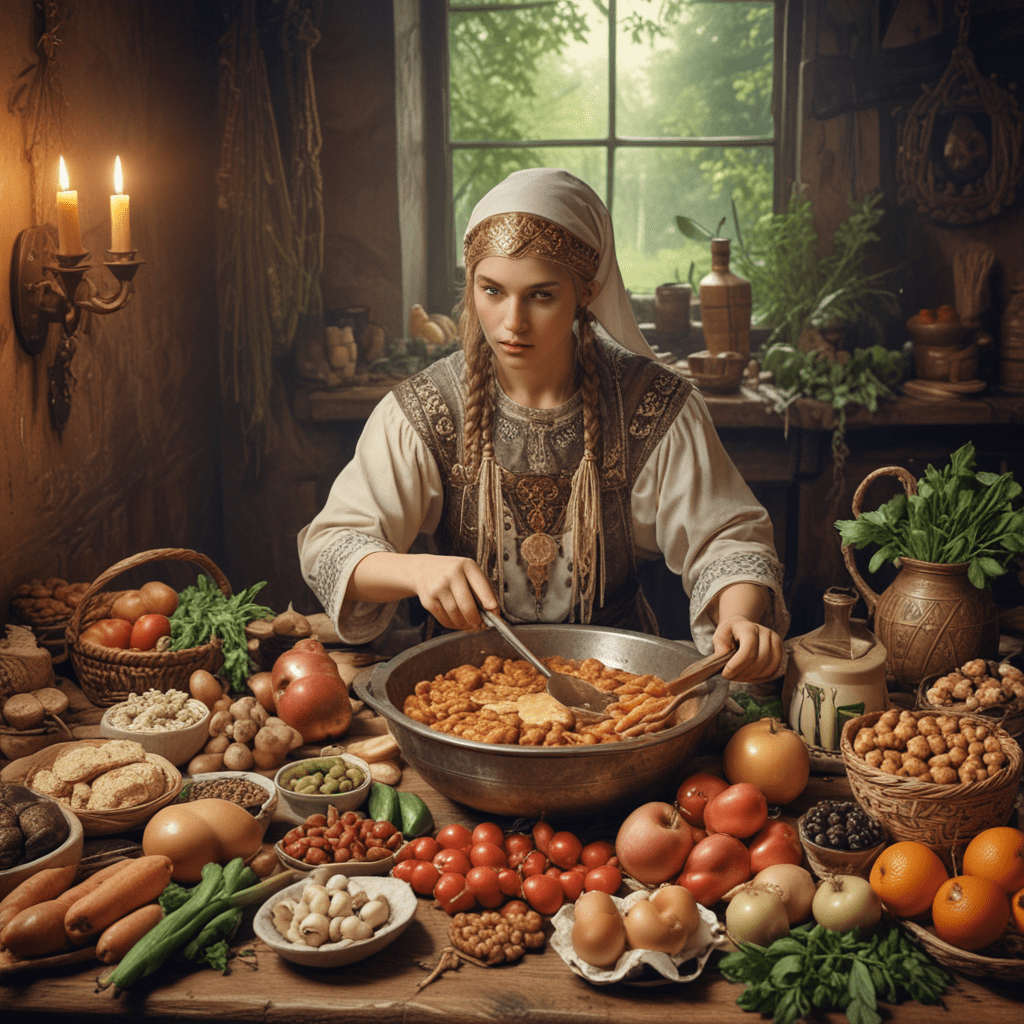The Influence of Slavic Mythology on Traditional Cuisine
Introduction
Slavic mythology, with its rich tapestry of beliefs, rituals, and supernatural beings, has left an enduring mark on the culinary traditions of Slavic cultures. From creation myths to sacred food, Slavic mythology has influenced the way Slavic people perceive, prepare, and consume their food.
Creation Myths and Culinary Beliefs
Slavic creation myths often depict food as a central element in the origins of the world. In one myth, the god Rod creates the universe from a golden egg, which contains the seeds of all living things, including food. This belief in the sacredness of food continues to shape Slavic culinary practices today.
The Deification of Animals
Slavic mythology deified many animals, attributing to them divine qualities and powers. For example, the bear was considered a sacred animal, and its meat was believed to possess healing properties. This reverence for certain animals led to specific culinary taboos and rituals associated with consuming their flesh.
Rituals and Ceremonies
Slavic mythology played a significant role in various rituals and ceremonies involving food. During festivals and holidays, specific dishes were prepared and consumed to honor gods, commemorate ancestors, or mark important life events. These rituals reinforced the connection between mythology, food, and the community.
VI. Sacred Food
Slavic mythology designated certain foods as sacred, imbued with special powers or significance. Bread, in particular, was revered as a symbol of life and fertility. Honey, believed to possess healing properties, was also highly valued. These sacred foods were often incorporated into rituals and ceremonies to invoke divine favor or protect against evil.
VII. Mythological Symbols
Slavic mythology is replete with symbols that have found their way into culinary traditions. The circle, representing the sun and fertility, is commonly found in the shape of Slavic pastries. The crescent moon, associated with femininity and magic, is often depicted on ritual breads. These symbols connected food to the divine and the supernatural, enhancing its significance beyond nourishment.
VIII. Food as a Form of Magic
In Slavic mythology, food could be used as a form of magic. Spells and charms were believed to be embedded in dishes, empowering them with healing, protective, or aphrodisiac properties. Certain herbs and ingredients were attributed with magical qualities, enhancing the potency of culinary creations. Food thus became a vessel for conveying both nourishment and supernatural energies.
IX. Slavic Folklore and Food
Slavic folklore is rich with tales that intertwine food with myth and legend. The tale of Baba Yaga, an enigmatic forest witch, often depicts her offering food to lost travelers, representing both nourishment and danger. Other stories feature enchanted apples, magical potions, and talking animals that shape the culinary landscape of Slavic folklore.
X. Conclusion
The influence of Slavic mythology on traditional cuisine is multifaceted and profound. From creation myths to sacred food, rituals to mythological symbols, food has been intertwined with the spiritual and supernatural beliefs of Slavic cultures. Slavic cuisine is not merely a collection of dishes but a reflection of a rich mythological tapestry that has shaped the culinary practices, beliefs, and folklore of Slavic peoples for centuries.
FAQ
Q: How did Slavic mythology influence the consumption of meat?
A: The deification of certain animals in Slavic mythology led to specific culinary taboos and rituals associated with consuming their flesh. For example, the bear was considered a sacred animal, and its meat was believed to possess healing properties.
Q: What is the significance of bread in Slavic mythology?
A: Bread was revered as a symbol of life and fertility in Slavic mythology. It was often incorporated into rituals and ceremonies to invoke divine favor or protect against evil.
Q: How was food used as a form of magic in Slavic mythology?
A: Food could be used as a form of magic in Slavic mythology through spells and charms embedded in dishes. Certain herbs and ingredients were attributed with magical qualities, enhancing the potency of culinary creations. Food thus became a vessel for conveying both nourishment and supernatural energies.



